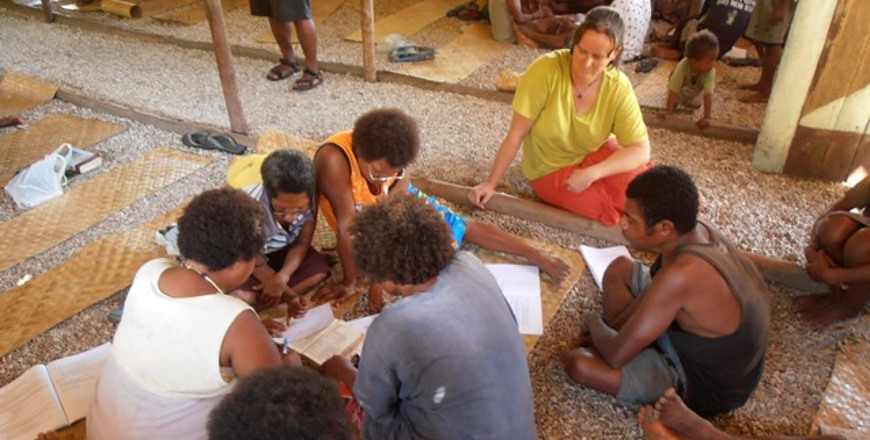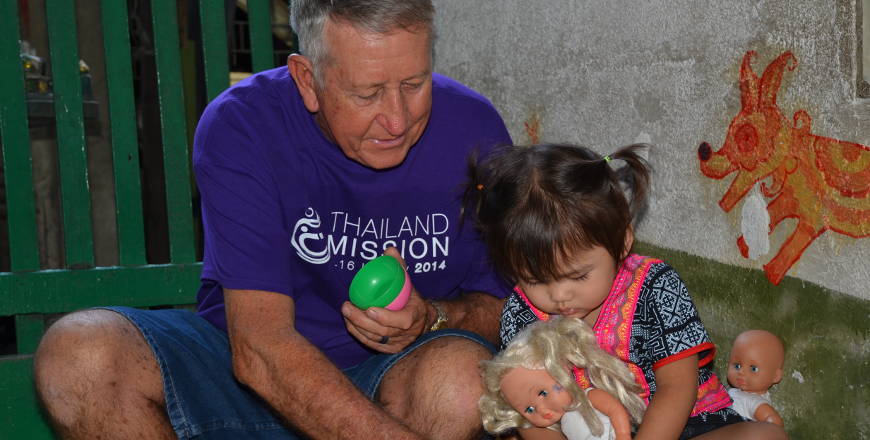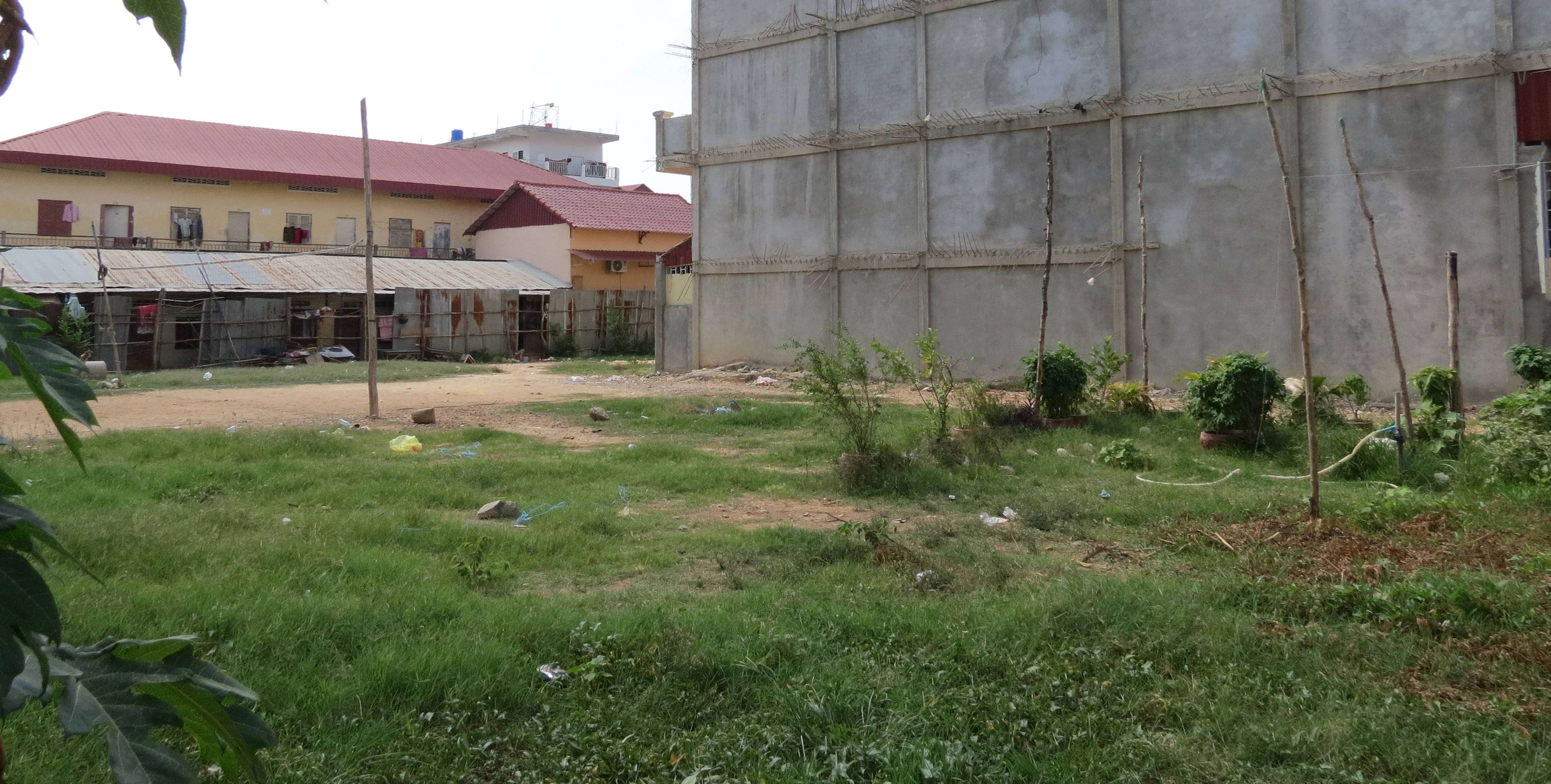Heart sounds
In Papua New Guinea a self-confessed ‘nerd in hiking boots’ wends her way along steep and narrow mountain tracks, putting to work her trust in God every time she steps onto a bridge.
As a linguist and translation worker, Hanna Schulz is carrying on a vision of cross-cultural mission which has been part of the Lutheran Church for centuries. She was sent out to do this work by Lutheran Bible Translators Australia (LBTA).
From the beginnings of the Reformation, Martin Luther recognised the importance of the ‘language of the heart’ – of being able to hear and read Scripture in the language spoken by families in their homes. Luther’s first translation of the New Testament (from Greek to German) took just eleven weeks to complete, but he continued to refine both it and his later translation of the Old Testament for the rest of his life.
As the Protestant movement grew, the work of translation also grew. Many of the missionary societies of the 19th century understood the importance of linguistic studies for their missionaries, wherever they were destined to serve. Today LBTA works in partnership with Wycliffe Bible Translators, a non-denominational Christian organisation working internationally in the field of language development and producing local translations of Scripture where possible.
In March, Hanna was preparing to return to Papua New Guinea after her first Australian furlough. She has spent the past two years as an ‘apprentice’, building relationships, building her own skills by assisting others on their projects and experiencing the broad range of tasks which she will become engaged, as she seeks out a language community and an associate to partner with in translation.
Papua New Guinea often promotes itself as the ‘Land of the Unexpected’, and Hanna Schulz has learnt to enjoy that description. ‘There are unexpected blessings and unexpected challenges’, she grins.
While scriptural materials have been available in Tok Pisin for some time, Hanna says that these are a poor substitute for people being able to read and understand the Bible in their heart language. ‘Pidgin is largely a trade language, with only between 2000 and 3000 words. It is heart languages which express the depths of faith, and for most people that is not Tok Pisin. A heart language truly connects with people; more faith is poured into their hearts. It really tells people, “God loves you, just as you are”. God is accessible’, Hanna explains.
Papua New Guinea is home to more than 850 languages. This is one of the many challenges to literacy in the country. Access to education, level of teacher training, availability of resources and family responsibilities also pose significant challenges. Education is officially in English, and often resources are limited in local language. Translators work to build literacy through workshops, material production and the training of community-based teachers. This is work that brings special joy and pride to speakers.
Hanna spent some time working on a literacy project in the Koriki language in Gulf Province. ‘The people were overwhelmingly thankful that we were helping their kids to read and write in their own language’, she says.
She has contributed to other projects in a variety of ways during this apprenticeship: working alongside translators and advisors as they check early drafts, making certain that the correct words are used for the context; reviewing how different sounds are rendered into an alphabet to ensure consistency; describing the grammar of a language, to help translations sound natural; checking that the genre of each book is translated appropriately for its theological purpose.
‘I helped with the follow-up from one final theological check on a New Testament. We talked through about a thousand issues the consultant had identified, and brought this back to just two remaining questions’, Hanna says. This is a long process of prayer and conversation, as transition workers and fluent speakers work through complex problems of language, culture, theology, meaning and intent.
As she travelled back to Papua New Guinea after two months in Australia, Hanna was looking forward to the next steps along her path; finding a partner to work with and a community keen to begin the journey. She has decided to partner with her colleague and friend Catherine Rivard, who has also spent two years working on various translation projects in Papua New Guinea. Together they are now looking at which language community they will commit to working with long-term. ‘It means looking at a lot of reports, spending time with a community, lots of prayer and discernment. Then we jump in at the deep end again!’ she explains.
The advent of computers into the field of translation is having a profound effect. Hanna has found herself involved in training language users to use computers effectively.
She is encouraged by the many supporters who share her vision and support her work financially and in prayer. ‘It is so encouraging to have so many people supporting, encouraging and praying for me’, Hanna says, after taking on 18 opportunities to speak to congregations and church bodies in just eight weeks.
‘It is also amazing to see faithful Australian Lutheran people going about their faith, being Christians in an Australian context. We come in so many flavours,’ she said.
If you would like to consider the opportunity to donate to Hanna Schulz, who is serving as a linguist and translation advisor in Papua New Guinea, you are invited to go to https://wycliffe.org.au/member/hanna/
For more information about Hanna Schulz, go to http://www.lcamission.org.au/about-us/who-we-are/countries/papua-new-guinea/papua-new-guinea-hanna-schulz/




